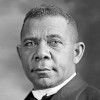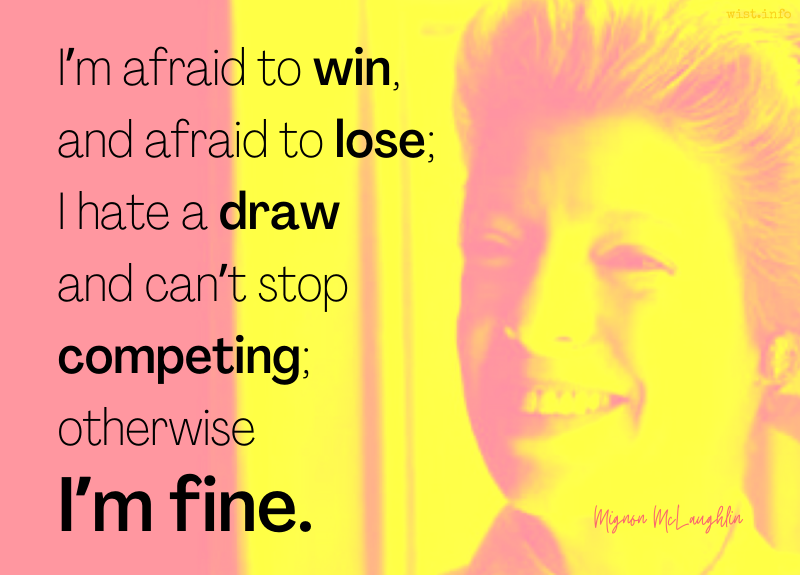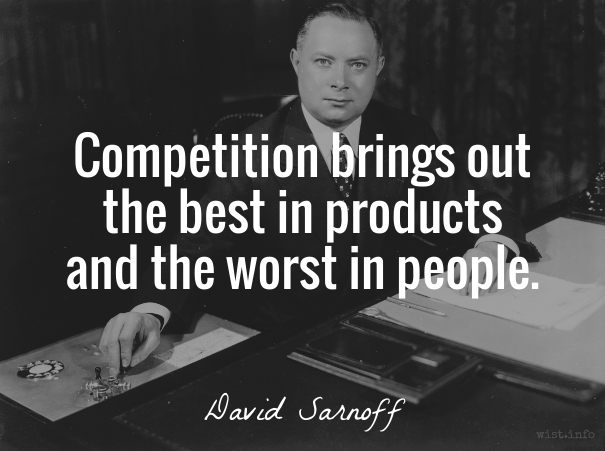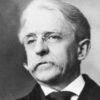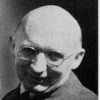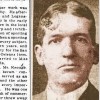All struggles
Are essentially
power struggles.
Who will rule,
Who will lead,
Who will define,
refine,
confine,
design,
Who will dominate.
All struggles
Are essentially
power struggles,
and most
are no more intellectual
than two rams
knocking their heads together.
Quotations about:
competition
Note not all quotations have been tagged, so Search may find additional quotes on this topic.
One ov the most perfekt viktorys yu kan achieve over enny man, iz to beat him in politeness.
[One of the most perfect victories you can achieve over any man, is to beat him in politeness.]
Josh Billings (1818-1885) American humorist, aphorist [pseud. of Henry Wheeler Shaw]
Josh Billings’ Farmer’s Allminax, 1875-07 “2 Fakts” (1875 ed.)
(Source)
And what can we do to silence these Christian athletes who thank Jesus whenever they win, never mention his name when they lose? Not a word. You never hear them say, “Jesus made me drop the ball.” “The good Lord tripped me up behind the line of scrimmage.” According to these guys, Jesus is undefeated, meanwhile these assholes are in last place. Must be another one of those “miracles.”
George Carlin (1937-2008) American comedian
Show (1996-03-29), Back in Town, “Free-Floating Hostility,” Beacon Theatre, New York City (HBO)
(Source)
(Source (Video); text confirmed)
Once it is realized that business monopoly in America paralyzes the system of free enterprise on which it is grafted, and is as fatal to those who manipulate it as to the people who suffer beneath its impositions, action by the government to eliminate these artificial restraints will be welcomed by industry throughout the nation.
For idle factories and idle workers profit no man.Franklin Delano Roosevelt (1882-1945) American lawyer, politician, statesman, US President (1933-1945)
Message (1938-04-29) to Congress, On Curbing Monopolies
(Source)
Competition, of course, like all other good things, can be carried to excess. Competition should not extend to fields where it has demonstrably bad social and economic consequences. The exploitation of child labor, the chiseling of workers’ wages, the stretching of workers’ hours, are not necessary, fair or proper methods of competition.
Franklin Delano Roosevelt (1882-1945) American lawyer, politician, statesman, US President (1933-1945)
Message (1938-04-29) to Congress, On Curbing Monopolies
(Source)
The human race is an unfair and stupid competition. A lot of the runners don’t even get decent sneakers or clean drinking water.
Some runners are born with a massive head start, every possible help along the way and still the referees seem to be on their side.
It’s not surprising a lot of people have given up competing altogether and gone to sit in the grandstand, eat junk food and shout abuse.
What we need in this race is a lot more streakers.Banksy (b. 1974?) England-based pseudonymous street artist, political activist, film director
Wall and Piece, “Rats” (2005)
(Source)
The root of the trouble springs from too much emphasis upon competitive success as the main source of happiness. I do not deny that the feeling of success makes it easier to enjoy life. A painter, let us say, who has been obscure throughout his youth, is likely to become happier if his talent wins recognition. Nor do I deny that money, up to a certain point, is very capable of increasing happiness; beyond that point, I do not think it does so. What I do maintain is that success can only be one ingredient in happiness, and is too dearly purchased if all the other ingredients have been sacrificed to obtain it.
Bertrand Russell (1872-1970) English mathematician and philosopher
Conquest of Happiness, Part 1, ch. 3 “Competition” (1930)
(Source)
For my part, the thing that I would wish to obtain from money would be leisure with security. But what the typical modern man desires to get with it is more money, with a view to ostentation, splendour, and the outshining of those who have hitherto been his equals.
Bertrand Russell (1872-1970) English mathematician and philosopher
Conquest of Happiness, Part 1, ch. 3 “Competition” (1930)
(Source)
The working life of the businessman has the psychology of a hundred-yards race, but as the race upon which he is engaged is one whose only goal is the grave, the concentration, which is appropriate enough for a hundred yards, becomes in the end somewhat excessive.
Bertrand Russell (1872-1970) English mathematician and philosopher
Conquest of Happiness, Part 1, ch. 3 “Competition” (1930)
(Source)
What people mean, therefore, by the struggle for life is really the struggle for success. What people fear when they engage in the struggle is not that they will fail to get their breakfast next morning, but that they will fail to outshine their neighbours.
Bertrand Russell (1872-1970) English mathematician and philosopher
Conquest of Happiness, Part 1, ch. 3 “Competition” (1930)
(Source)
Instinctively we divide mankind into friends and foes — friends, towards whom we have the morality of co-operation; foes, towards whom we have that of competition. But this division is constantly changing; at one moment a man hates his business competitor, at another, when both are threatened by Socialism or by an external enemy, he suddenly begins to view him as a brother. Always when we pass beyond the limits of the family it is the external enemy which supplies the cohesive force. In times of safety we can afford to hate our neighbour, but in times of danger we must love him.
Bertrand Russell (1872-1970) English mathematician and philosopher
Authority and the Individual, Lecture 1 (1949)
(Source)
Collection, with some edits, of the inaugural Reith Lectures, BBC, "Authority and the Individual," No. 1 "Social Cohesion and Human Nature" [14:16] (1948-12-26).
I said to God, “What are they doing?”
God said, “Making pitfalls into which their fellows may sink.”
I said to God, “Why do they do it?”
God said, “Because each thinks that when his brother falls he will rise.”Olive Schreiner (1855-1920) South African author, political activist, intellectual, freethinker
“The Sunlight Lay Across My Bed,” Dreams (1890)
(Source)
Describing Hell.
Many people believe that possession of unchallenged economic power deadens initiative, discourages thrift and depresses energy; that immunity from competition is a narcotic, and rivalry is a stimulant, to industrial progress; that the spur of constant stress is necessary to counteract an inevitable disposition to let well enough alone. Such people believe that competitors, versed in the craft as no consumer can be, will be quick to detect opportunities for saving and new shifts in production, and be eager to profit by them. […] True, it might have been thought adequate to condemn only those monopolies which could not show that they had exercised the highest possible ingenuity, had adopted every possible economy, had anticipated every conceivable improvement, stimulated every possible demand. No doubt, that would be one way of dealing with the matter, although it would imply constant scrutiny and constant supervision, such as courts are unable to provide. Be that as it may, that was not the way that Congress chose; it did not condone “good trusts” and condemn “bad” ones; it forbad all.
Learned Hand (1872-1961) American jurist
United States v. Aluminum Co. of America, 148 F.2d 416, 427 (1945)
(Source)
If we cut up beasts simply because they cannot prevent us and because we are backing our own side in the struggle for existence, it is only logical to cut up imbeciles, criminals, enemies, or capitalists for the same reasons.
C. S. Lewis (1898-1963) English writer, literary scholar, lay theologian [Clive Staples Lewis]
“Vivisection,” New England Anti-Vivisection Society pamphlet (1947)
(Source)
Collected in God in the Dock, Part 2, ch. 9 (1970) [ed. Hooper].
No man lives without jostling and being jostled; in all ways he has to elbow himself through the world, giving and receiving offense.
Thomas Carlyle (1795-1881) Scottish essayist and historian
Essay (1837-12-06), “On Sir Walter Scott,” The London and Westminster Review, No. 12/55, Art. 2 (1838-01)
(Source)
Review of J. G. Lockhart, Memoirs of the Life of Sir Walter Scott, Baronet, 6 vols. (1837). Collected in Carlyle, Critical and Miscellaneous Essays (1827-1855).
I do not think military readiness, in itself, will defeat Communism. I do not think we can consider the job finished with that. I think it buys us time to do the bigger job. We must demonstrate that it is possible to overcome poverty, misery and decay by democratic means, and that we must ourselves believe, and must show others, that our American tradition of the dignity and liberty of the individual is not a luxury for easy times but is the basic source of strength and security of a successful society.
Jane Jacobs (1916-2006) American-Canadian journalist, author, urban theorist, activist
“No Virtue in Meek Conformity” (1952)
(Source)
Foreword to her response to a State Department Loyalty Security Board interrogatory (1952-03-25). Reprinted in Vital Little Plans (2016).
[T]here is a vast difference between games and play. Play is played for fun, but games are deadly serious, and you do not play them to enjoy yourself.
Maurice Baring (1874-1945) English man of letters, writer, essayist, translator
The Puppet Show of Memory, ch. 5 “School” (1922)
(Source)
But the best state for human nature is that in which, while no one is poor, no one desires to be richer, nor has any reason to fear being thrust back, by the efforts of others to push themselves forward.
John Stuart Mill (1806-1873) English philosopher and economist
Principles of Political Economy, Book 4, ch. 6 (1871)
(Source)
Competition, as an ideal, had its part to play in the pioneer days of both industrialism and Western agriculture. But its day is past, and a new type of man is needed. The problem of producing goods in sufficient quantities to make general material well-being technically possible was solved by the men of the competitive era. The problem that remains is one of distribution, not of production; it can be solved only by economic justice, not by economic war. For this problem, the mentality of the competitive era is unfitted, since it is only to be solved by co-operation.
Bertrand Russell (1872-1970) English mathematician and philosopher
“Competitive Ethics,” New York American (1934-03-19)
(Source)
In any country, regardless of what its laws say, wherever people act upon the idea that the disadvantage of one man is the good of another, there slavery exists. Wherever, in any country the whole people feel that the happiness of all is dependent upon the happiness of the weakest, there freedom exists.
Booker T. Washington (1856-1915) American educator, writer
Speech, Republican Club, New York City (12 Feb 1909)
(Source)
Impatience and cutting corners: it’s the primate way. It got us down out of the trees and up to the top of the evolutionary heap as a species, which is a lot more like a slippery, mud-slick game of King of the Hill with stabbing encouraged than any kind of tidy Victorian great chain of being or ladder of creation.
Elizabeth Bear (b. 1971) American author [pseud. for Sarah Bear Elizabeth Wishnevsky]
Ancestral Night (2019)
(Source)
The existence of inequality exposes everyone to the risk of being inferior, which in turn stimulates aggressive competition to inflict the inferior status on others (such as by enslaving, impoverishing, or degrading them). In other words, inequality stimulates shame and shame stimulates inequality; shame stimulates violence and violence stimulates shame; inequality leads to violence and violence leads to inequality.
James Gilligan (b. c. 1936) American psychiatrist and author
Preventing Violence, ch. 2 (2001)
(Source)
The crucial disadvantage of aggression, competitiveness, and skepticism as national characteristics is that these qualities cannot be turned off at five o’clock.
Margaret Halsey (1910-1997) American writer
The Folks at Home, “The Five O’Clock Shadow over the United States” (1952)
(Source)
Competition provides spice in life as well as in sports; it’s only when the spice becomes the entire diet that the player gets sick.
George Leonard (1923-2010) American writer, editor, and educator
Mastery: The Keys to Success and Long-Term Fulfillment (1991)
(Source)
The great disadvantage of being in a rat race is that it is humiliating. The competitors in a rat race are, by definition, rodents.
Nice guys finish last.
Leo Durocher (1905-1991) American professional baseball player, manager, coach ["Leo the Lip"]
(Paraphrase)
The full quote was reported by in the column by Frank Graham, "Leo Doesn't Like Nice Guys," New York Journal-American (6 Jul 1946). When, as Brooklyn Dodgers manager, asked by a reporter if he were a nice guy:Nice guys! Look over there. Do you know a nicer guy than Mel Ott? Or any of the other Giants? Why they’re the nicest guys in the world! And where are they? In seventh place! The nice guys over there are in seventh place. Well let them come and get me. The nice guys are all over there. In seventh place.
As the anecdote was retold (even when Graham's column was reprinted in Baseball Digest in the fall of that year), the references to "seventh place" began morphing into "last place" and "in the second division," eventually settling on the shorter version cited above. While Durocher originally denied he'd said the shorter version, he eventually lay claim to it, and used it as the title of his 1975 autobiography.
More discussion of this quotation:
A girl should not expect special privileges because of her sex but neither should she “adjust” to prejudice and discrimination. She must learn to compete then, not as a woman, but as a human being.
Betty Friedan (1921-2006) American writer, feminist, activist
The Feminine Mystique, ch. 14 (1963)
(Source)
A nation that silences or intimidates original minds is left only with unoriginal minds and cannot hope to hold its own in the competition of peace or of war.
Henry Steele Commager (1902-1998) American historian, writer, activist
Essay (1953-02-21), “Is Freedom Really Necessary?” Saturday Review
(Source)
Based on a discussion by the American Round Table, New York City (1951). Collected as "Free Enterprise in Ideas," Freedom, Loyalty and Dissent (1954).
I’m afraid to win, and afraid to lose; I hate a draw and can’t stop competing; otherwise I’m fine.
Mignon McLaughlin (1913-1983) American journalist and author
The Neurotic’s Notebook, ch. 4 (1963)
(Source)
The professional celebrity, male and female, is the crowning result of the star system of a society that makes a fetish of competition.
C. Wright Mills (1916-1962) American sociologist, academic, author [Charles Wright Mills]
The Power Elite (1956)
(Source)
If all men were rich, all men would be poor.
Mark Twain (1835-1910) American writer [pseud. of Samuel Clemens]
Mark Twain’s Noteook (1935 ed) [ed. Paine]
(Source)
A nationalist is one who thinks solely, or mainly, in terms of competitive prestige. He may be a positive or a negative nationalist — that is, he may use his mental energy either in boosting or in denigrating — but at any rate his thoughts always turn on victories, defeats, triumphs and humiliations. He sees history, especially contemporary history, as the endless rise and decline of great power units, and every event that happens seems to him a demonstration that his own side is on the upgrade and some hated rival is on the downgrade.
George Orwell (1903-1950) English writer [pseud. of Eric Arthur Blair]
“Notes on Nationalism” (May 1945)
(Source)
Strive to be the greatest Man in your Country, and you may be disappointed; Strive to be the best, and you may succeed: He may well win the race that runs by himself.
Benjamin Franklin (1706-1790) American statesman, scientist, philosopher, aphorist
Poor Richard’s Almanack (Jan 1747)
(Source)
A system must be managed. It will not manage itself. Left to themselves in the Western world, components become selfish, competitive, independent profit centres, and thus destroy the system. The secret is cooperation between components toward the aim of the organization. We can not afford the destructive effect of competition.
W. Edwards Deming (1900-1993) American management consultant, educator
The New Economics for Industry, Government, Education, ch. 3 “Introduction to a System” (1993)
(Source)
Every sect is a moral check on its neighbour. Competition is as wholesome in religion as in commerce.
Walter Savage Landor (1775–1864) English writer and poet
Imaginary Conversations, “Dialogues of Literary Men,” ch. 29 “Martin and Jack” (1824-29)
(Source)
I prefer to interact with people one-on-one. Any more than that, and the dynamic becomes competitive and then I get bored easily when I’m not directly participating in the exchange.
Laurie Helgoe (b. 1960) American psychologist and author
Introvert Power (2008)
(Source)
Quoting "Suzanne".
In the Feejee islands, it appears, cannibalism is now familiar. They eat their own wives and children. We only devour widows’ houses, & great merchants outwit & absorb the substance of small ones and every man feeds on his neighbor’s labor if he can. It is a milder form of cannibalism.
During the greater part of the nineteenth century the significance of the opposition between the two principles of individual rights and social functions was masked by the doctrine of the inevitable harmony between private interests and public good. Competition, it was argued, was an effective substitute for honesty. Today … few now would profess adherence to the compound of economic optimism and moral bankruptcy which led a nineteenth century economist to say: “Greed is held in check by greed, and the desire for gain sets limits to itself.”
R. H. Tawney (1880-1962) English writer, economist, historian, social critic [Richard Henry Tawney]
The Acquisitive Century, ch. 3 “The Acquisitive Society” (1920)
(Source)
“Which of them shall be accounted greatest?” Let the churches stop trying to outstrip each other in the number of their adherents, the size of its sanctuary, the abundance of wealth. If we must compete let us compete to see which can move toward the greatest attainment of truth, the greatest service of the poor, and the greatest salvation of the soul and bodies of men. If the Church entered this kind of competition we can imagine what a better world this would be.
Martin Luther King, Jr. (1929-1968) American clergyman, civil rights leader, social activist, preacher
“Cooperative Competition / Noble Competition,” sermon outline
(Source)
We should note that games are not games for children but are to be judged as the most serious things they do.
[De vray il faut noter, que les jeux des enfants ne sont pas jeux: & les faut juger en eux, comme leurs plus serieuses actions.]
Michel de Montaigne (1533-1592) French essayist
Essays, Book 1, ch. 23 (1.23), “Of Custom and Not Easily Changing an Accepted Law [De la Coustume et de Ne Changer Aisément une Loy Receüe]” (1572) [tr. Screech (1987)]
(Source)
(Source (French)). Alternate translations:For truely it is to bee noted, that Childrens playes are not sports, and should be deemed as their most serious actions.
[tr. Florio (1603), ch. 22]As it must be noted, that the plays of children are not in jest, but must be judged of as their most serious actions.
[tr. Cotton (1686)]Indeed, it is to be noted, that the plays of children are not performed in play, but are to be judged in them as their most serious actions.
[tr. Cotton/Hazlitt (1877), ch. 22]We must take note that the games of children are not games in their eyes; and we must regard these as their most serious actions.
[E.g. (1884)]Indeed, it should be noted that the games of children are not games, and must be judged as their most serious acts.
[tr. Ives (1925), ch. 23]Indeed it must be noted that children’s games are not games, and must be judged in children like their more serious actions.
[tr. Frame (1943), ch. 23]
Now Jesus himself saw the power that competition holds over men. He did not ignore it. Yet he does something with the conception of competition that hadn’t been done before. He takes the conception which has been used for lower purposes and rescues it from many of its dangers, by suggesting a higher method of its use. This is how he applied the term to his disciples. He saw them in danger of using it for low purposes. They wanted to compete for reputation and position — “which of them should be accounted greatest?” Jesus says so, if you must use the power of competition, if you must compete with on another, make it as noble as you can by using it on noble things. Use it for a fine, unselfish thing. “He that is greatest among you shall serve.” Use it for human good. Who shall be the most useful. Compete with one another in humility. See which can be the truest servant. It seems that Christ says, “Use it, but use it for higher and holier purposes. Use it not to surpass one another in esteem, but use it to increase the amount of usefulness and brother-help.” Such conceptions of competition lead to the surprising and ennobling position that there can be competition without hate and jealousy. Behold! You can struggle to beat and yet rejoice to be beaten.
Martin Luther King, Jr. (1929-1968) American clergyman, civil rights leader, social activist, preacher
“Cooperative Competition / Noble Competition,” sermon outline
(Source)
When I was introduced to art school, everybody was 20, 22, and 25 years old. Many of them had graduated from college. So there I was, and I was about half their height. And I looked at these guys and I thought, “I can’t compete with these birds!” So at the end of the first week I went home. I was so disillusioned. I was a failure at 15. So my uncle, who lived with us occasionally, came up and he said, “You look awful. You look like something the dog had under the front porch. What’s the matter?” “I can’t compete with these guys at school. They draw like Leonardo da Vinci. I’ll never catch up with them.” I felt like it was the end of the world for me. I could draw a little bit. But I couldn’t keep up with the big guys. So I suddenly blurted out and I said, “You can’t make a racehorse out of a pig!” And my uncle looked at me very gently, and he patted me on the knee, and he said, “No. But you can make a very fast pig.” And I realized that’s what it was really all about. I could only be as good as I could be, whatever my limits were. And I learned a second thing: creative work is never competitive.
Chuck Jones (1912-2002) American animator, screenwriter, producer, and director
Interview with Tom Sito, Archive of American Television (17 Jun 1998)
(Source)
Recently I asked three corporate executives what decisions they had made in the last year that they would not have made were it not for their it not for their corporate plans. All had difficulty in identifying one such decision. Since each of their plans were marked “secret” or “confidential,” I asked them how their competitors might benefit from the possession of their plans. Each answered with embarrassment that their competitors would not benefit. Yet these executives were strong advocates of corporate planning.
[Wash is at his station on the bridge, playing with plastic dinosaurs.]
WASH [as Stegosaur]: Yes … yes, this is a fertile land, and we will thrive. We will rule over all this land, and we will call it … This Land.
WASH [as Allosaur]: I think we should call it … your grave!
WASH [as Stegosaur]: Ah! Curse your sudden but inevitable betrayal!
WASH [as Allosaur]: Ha ha ha! Mine is an evil laugh! Now DIE!
WASH [as Stegosaur]: Oh no, God, oh dear God in Heaven …
What shall it profit a man, if he shall gain the whole world, and lose his own soul?
[τί γὰρ ὠφελεῖ ἄνθρωπον κερδῆσαι τὸν κόσμον ὅλον καὶ ζημιωθῆναι τὴν ψυχὴν αὐτοῦ]
The Bible (The New Testament) (AD 1st - 2nd C) Christian sacred scripture
Mark 8: 36 (Jesus) [KJV (1611)]
(Source)
This passage is paralleled in Matthew 16:26 and Luke 9:25.
(Source (Greek)). Alternate translations:What gain, then, is it for a man to win the whole world and ruin his life?
[JB (1966)]What gain, then, is it for anyone to win the whole world and forfeit his life?
[NJB (1985)]Do you gain anything if you win the whole world but lose your life? Of course not!
[GNT (1992 ed.)]Why would people gain the whole world but lose their lives?
[CEB (2011)]For what will it profit them to gain the whole world and forfeit their life?
[NRSV (2021 ed.)]
The practical work of today is to abolish the cannibals of competition, warriors of supply and demand, tyrants of monopoly, monsters of the market, devourers of men, women and children, buyers and sellers of life.
Henry Demarest Lloyd (1847-1903) American political activist and journalist
Man, the Social Creator, ch. 5 (1906)
(Source)
One lesson you better learn if you want to be in politics is that you never go out on a golf course and beat the President.
Lyndon B. Johnson (1908-1973) American politician, educator, US President (1963-69)
Comment (1964) to Larry O’Brien III
(Source)
On the occasion of O'Brien beating Johnson by one stroke on a nine-hole golf outing. Noted by his father in his book, No Final Victories: A Life in Politics, ch. 8 "LBJ" (1974).
See Gracian.
Now that I have grown old, I realize that for most of us it is not enough to have achieved personal success. One’s best friend must also have failed.
W. Somerset Maugham (1874-1965) English novelist and playwright [William Somerset Maugham]
Comment (1959)
A comment recorded by a journalist on his 85th birthday, quoted in Richard Cordell, Somerset Maugham: A Biographical and Critical Study (1961). Cordell mentions the influence of La Rochefoucauld on the phrase, and it is therefore often attributed to La Rochefoucauld, though it is not in his Maxims.
Also attributed to Gore Vidal, Iris Murdoch, Genghis Khan.
Pithier (and more common) paraphrases:More discussion of this quotation here: It Is Not Enough to Succeed; One’s Best Friend Must Fail – Quote Investigator®.
- "It is not enough to succeed; one’s best friend must fail."
- "It is not enough to succeed; one’s friends must fail."
- "It is not enough to succeed; others must fail."
- "It’s not enough that I should succeed, others should fail."
- "It is not sufficient that I succeed –- all others must fail."
The important thing in life is not the victory but the contest; the essential thing is not to have won but to have fought well.
[L’important dans la vie ce n’est point le triomphe, mais le combat, l’essentiel ce n’est pas d’avoir vaincu mais de s’être bien battu.]
Pierre Frédy, Baron de Coubertin (1863-1937) French pedagogue, historian, founder of the International Olympic Committee
Olympic Creed, Speech, Olympic Games, London (24 Jul 1908)
Alt. trans: "The important thing in life is not the triumph but the struggle, the essential thing is not to have conquered but to have fought well."
Original phrasing by de Coubertin: "The importance of these Olympiads is not so much to win as to take part."
De Coubertin was drawing from a sermon by Bp. Ethelbert Talbot at St Paul's Cathedral, London (19 Jul 1908): "We have just been contemplating the great Olympic Games. What does it mean? It means that young men of robust physical life have come from all parts of the world. It does mean, I think, as someone has said, that this era of internationalism as seen in the Stadium has an element of danger. Of course, it is very true, as he says, that each athlete strives not only for the sake of sport, but for the sake of his country. Thus a new rivalry is invented. If England be beaten on the river, or America outdistanced on the racing path, or that American has lost the strength which she once possessed. Well, what of it? The only safety after all lies in the lesson of the real Olympia -- that the Games themselves are better than the race and the prize. St. Paul tells us how insignificant is the prize, Our prize is not corruptible, but incorruptible, and though only one may wear the laurel wreath, all may share the equal joy of the contest. All encouragement, therefore, be given to the exhilarating -- I might also say soul-saving -- interest that comes in active and fair and clean athletic sports."
No sooner is a Temple built to God but the Devill builds a Chappell hard by.
George Herbert (1593-1633) Welsh priest, orator, poet.
Jacula Prudentum, or Outlandish Proverbs, Sentences, &c. (compiler), # 674 (1640 ed.)
(Source)
See also Martin Luther.
There is nobody so irritating as somebody with less intelligence and more sense than we have.
Don Herold (1889-1966) American humorist, cartoonist, author
So Human, “Shetland Ponies vs. Autos,” epigraph (1924)
(Source)
Freedom is not an ideal, it is not even a protection, if it means nothing more than freedom to stagnate, to live without dreams, to have no greater aim than a second car and another television set — and this in a world where half our fellow men have less than enough to eat.
Adlai Stevenson (1900-1965) American diplomat, statesman
“Putting First Things First”, Foreign Affairs (1960-01)
(Source)
He that wrestles with us strengthens our nerves and sharpens our skill. Our antagonist is our helper.
Edmund Burke (1729-1797) Anglo-Irish statesman, orator, philosopher
Reflections on the Revolution in France (1790)
(Source)
The chief difference between free capitalism and State socialism seems to be this: that under the former a man pursues his own advantage openly, frankly, and honestly, whereas under the latter he does so hypocritically and under false pretences.
Never contend with a Man who has nothing to Lose.
[No empeñarse con quien no tiene qué perder.]
Baltasar Gracián y Morales (1601-1658) Spanish Jesuit priest, writer, philosopher
The Art of Worldly Wisdom [Oráculo Manual y Arte de Prudencia], § 172 (1647) [tr. Jacobs (1892)]
(Source)
(Source (Spanish)). Alternate translations:Never to engage with him that hath nothing to lose.
[Flesher ed. (1685)]Do not engage with him who has nothing to lose.
[tr. Fischer (1937)]Never compete with someone who has nothing to lose.
[tr. Maurer (1992)]
HOBBES: Well, the important thing is that we tried our best.
CALVIN: The important thing is that we lost!
HOBBES: Oops, I always forget the purpose of competition is to divide people into winners and losers.
CALVIN: What’s the point of trying if you can’t be a winner?
It may be that the race is not always to the swift, nor the battle to the strong — but that’s the way to bet.
Hugh E. Keough (1864-1912) Canadian-American sports journalist
(Attributed)
Variants:Also attributed to Damon Runyon, Franklin Pierce Adams, Grantland Rice, and Burns Mantle, all of of whom in turn credited Keough. The saying itself, a take-off on Ecclesiastes 9:11, has a number of antecedents: see here for more background.
- "The race is not to the swift, nor the battle to the strong; but the betting is best that way."
- "To be sure the race is not always to the swift, nor the battle to the strong; but it is ninety-nine times in a hundred."
If you don’t play to win, why bother to keep score?
Adolph Rupp (1901-1977) American college basketball coach
Comment (11 Jun 1958)
Rupp frequently returned to this phrase, usually in response to someone quoting to him from Grantland Rice's "Alumnus Football" (paraphrased, "It doesn't matter whether you win or lose, but how you play the game").
Variations:Rupp wasn't necessarily the originator of this thought. Clair Bee, another US college basketball coach, said during the CCNY Point Shaving Scandal that ended his career, "If the kids aren't playing for keeps, why keep score?" (20 Feb 1951).
- "If it doesn't matter who wins or loses, then what in the hell is that scoreboard doing up there?"
- "If it doesn't matter, then why does every school have a scoreboard? If it doesn't matter who wins why do 25,000 football fans follow a team 400 miles and sit in eight inches of snow to watch the game?" [Source]
- "If winning isn't so important, why do they keep score?" [Source]
Sometimes attributed to Vince Lombardi.
More discussion of this quotation: The Big Apple: “If winning isn’t important, why keep score?”
Those blush to lose a conquering game,
And fain would peril life for fame:
These bring success their zeal to fan;
They can because they think they can.[Hi proprium decus et partum indignantur honorem
ni teneant, vitamque volunt pro laude pacisci;
hos successus alit: possunt, quia posse videntur.]Virgil (70-19 BC) Roman poet [b. Publius Vergilius Maro; also Vergil]
The Aeneid [Ænē̆is], Book 5, l. 229ff (5.229-231) (29-19 BC) [tr. Conington (1866)]
(Source)
Of the crews of the two remaining ships racing at the funeral games of Anchises: Cloanthus' Scylla which is closing on the finish line; Mnestheus' Pristis which has come up from last place and may yet take the lead. (Cloanthus wins the race by offering a sacrifice to the sea gods.)
(Source (Latin)). Alternate translations:These their new glory, honours got despise,
Unless they keep it, and to gaine the prize
Would sell their lives; success feeds them; they may
Because they think they can obtain the day.
[tr. Ogilby (1649)]Resolv'd to hold their own, they mend their pace,
All obstinate to die, or gain the race.
Rais'd with success, the Dolphin swiftly ran;
For they can conquer, who believe they can.
[tr. Dryden (1697)]These are fired with indignation, lest they should lose their possession of glory and honor they have won; and they are willing to barter life for renown. Those success cherishes; they are able because they seem to be able.
[tr. Davidson/Buckley (1854)]These scorn to lose the honour that is their own, the glory in their grasp, and would sell life for renown; to these success lends life; power comes with belief in it.
[tr. Mackail (1885)]These, thinking shame of letting fall their hardly-gotten gain
Of glory's meed, to buy the praise with very life are fain;
Those, fed on good-hap, all things may, because they deem they may
[tr. Morris (1900), l. 228ff]These scorn to lose their vantage, stung with shame,
And life is wagered willingly for fame.
Success inspires the hindmost; as they dare,
They do; the thought of winning wins the game.
[tr. Taylor (1907), st. 31, l. 274ff]The leaders now with eager souls would scorn
to lose their glory, and faint-hearted fail
to grasp a prize half-won, but fain would buy
honor with life itself; the followers too
are flushed with proud success, and feel them strong
because their strength is proven.
[tr. Williams (1910)]These think it shame not to keep the honour that is theirs, the glory they have won, and would barter life for fame: those success heartens; strong are they, for strong they deem themselves.
[tr. Fairclough (1916)]On the Scylla
They would give their lives to hold their place, they have won it,
The glory and honor are theirs already, almost;
And Mnestheus’ men take courage from their nearness;
They can because they think they can.
[tr. Humphries (1951)]One crew was compelled by the shame of losing a prize they had all but
Gained for their own, and would give their lives for its glory; the other
Was fired by success -- they could do it because they believed they could do it.
[tr. Day-Lewis (1952)]Cloanthus' crewmen
now think it a disgrace to fail to keep
the fame and honor they themselves have won,
and they would give their very lives for glory;
but Menestheus' men are strengthened by success,
they have the power because they feel they have it.
[tr. Mandelbaum (1971), l. 301ff]One crew fought off the shame of losing honor
Theirs already, glory won; they'd give
Their lives for fame; but luck empowered the others
Who felt that they could do it, and so could.
[tr. Fitzgerald (1981), l. 294ff]Cloanthus and his men on the Scylla saw the honour as theirs by right. They had already won the victory and had no intention of giving it up. They would rather have lost their lives than lose the glory. Mnestheus and his men on the Pristis were feeding on success. They could win because they thought they could.
[tr. West (1990)]The former crew are unhappy lest they fail to keep
the honour that is theirs and the glory already
in their possession, and would sell their lives for fame.
the latter feed on success: they can because they think they can.
[tr. Kline (2002)]One crew, stung by the shame of losing victory now
with glory won, would trade their lives for fame.
But Mnestheus and his crew, fired by their success,
can just about win the day because they think they can.
[tr. Fagles (2006), l. 256ff]One crew would hate to lose the glory of an honor all but one. They'd trade their lives for victory. The others were encouraged by success. Belief in victory spurred them on.
[tr. Bartsch (2021)]
When men have realized that time has upset many fighting faiths, they may come to believe even more than they believe the very foundations of their own conduct that the ultimate good desired is better reached by free trade in ideas — that the best test of truth is the power of the thought to get itself accepted in the competition of the market.
Look around the table. If you don’t see a sucker, get up, because you’re the sucker.
"Amarillo Slim" Preston (1928-2012) American gambler [Thomas Austin Preston, Jr.]
(Attributed)
Though he used the phrase, he did not take credit for it. More information here.Variants:
- "If after ten minutes at the poker table you do not know who the patsy is -- you are the patsy."
- "If you sit in on a poker game and don't see a sucker, get up. You're the sucker."
- "If you enter a poker game and you don't see a sucker, get up and leave -- you’re it."














